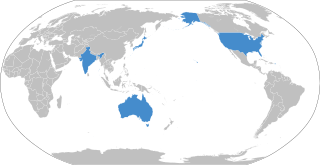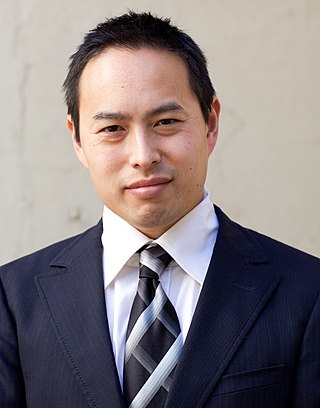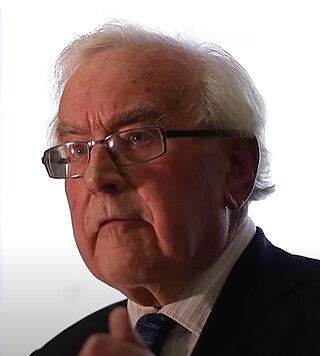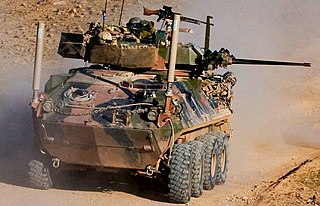
The Australian Defence Force (ADF) is the military organisation responsible for the defence of the Commonwealth of Australia and its national interests. It has three branches: the Royal Australian Navy (RAN), Australian Army and the Royal Australian Air Force (RAAF). The ADF has a strength of just over 89,000 personnel and is supported by the Department of Defence and several other civilian agencies.

The Indo-Pacific is a vast biogeographic region of Earth.
The Defence Science and Technology Group (DSTG) is a part of the Australian Department of Defence, which provides science and technology support to safeguard Australia and its national interests. The agency's name was changed from Defence Science and Technology Organisation (DSTO) on 1 July 2015. It is Australia's second largest government-funded science organisation after the CSIRO and its research outcomes have supported operations for over 100 years.
The Defence Strategic Policy and Intelligence Group (SP&I) of the Australian Government Department of Defence is responsible for defence diplomacy, strategic policy, international security, and military intelligence co-ordination and advice to the Prime Minister of Australia, Minister for Defence, Secretary of the Department of Defence, and Chief of the Defence Force. The Defence Strategic Policy and Intelligence Group is led by the Deputy Secretary for Strategic Policy and Intelligence and comprises three policy divisions and two intelligence agencies.

Bilateral relations exist between Australia and Japan.
The Australian Intelligence Community (AIC) and the National Intelligence Community (NIC) or National Security Community of the Australian Government are the collectives of statutory intelligence agencies, policy departments, and other government agencies concerned with protecting and advancing the national security and national interests of the Commonwealth of Australia. The intelligence and security agencies of the Australian Government have evolved since the Second World War and the Cold War and saw transformation and expansion during the Global War on Terrorism with military deployments in Afghanistan, Iraq and against ISIS in Syria. Key international and national security issues for the Australian Intelligence Community include terrorism and violent extremism, cybersecurity, transnational crime, the rise of China, and Pacific regional security.

The Australian Strategic Policy Institute (ASPI) is a defence and strategic policy think tank based in Canberra, Australian Capital Territory, founded by the Australian government, and funded by the Australian Department of Defence along with overseas governments, and defence and technology companies.
David Murray Horner, is an Australian military historian and academic.
Robert John O'Neill, was an Australian historian and academic. He served as the chair of the International Academic Advisory Committee at the United States Studies Centre at the University of Sydney, was director of the International Institute for Strategic Studies, based in London, from 1982 to 1987, and was Chichele Professor of the History of War at the University of Oxford from 1987 to 2000.
The Center for Strategic and Budgetary Assessments (CSBA) is an independent, non-profit, Washington, D.C.-based think tank specializing in US defense policy, force planning, and budgets. It is headed by Thomas Mahnken. CSBA's stated mission is "to develop innovative, resource-informed defense concepts, promote public debate, and spur action to advance U.S. and allied interests."

Robert Orton Work is an American national security professional who served as the 32nd United States Deputy Secretary of Defense for both the Obama and Trump administrations from 2014 to 2017. Prior to that, Work was the United States Under Secretary of the Navy from 2009 to 2013, and before that served as a colonel in the United States Marine Corps; Work retired in 2001 and worked as a civilian at the Center for Strategic and Budgetary Assessments (CSBA) and the George Washington University in various positions relating to military and strategic study. From 2013 to 2014, he was the CEO of the Center for a New American Security (CNAS). After his time as Deputy Secretary of Defense, he went on to serve on the board of Raytheon. As of October 2023, he serves on the Special Competitive Studies Project's board of advisors.
AirSea Battle is an integrated battle doctrine that forms a key component of the military strategy of the United States. The doctrine became official in February 2010, and was renamed to Joint Concept for Access and Maneuver in the Global Commons (JAM-GC) in 2015.

Anti-Access/Area Denial is a military strategy to control access to and within an operating environment. In an early definition, anti-access refers to those actions and capabilities, usually long-range, designed to prevent an opposing force from entering an operational area. Area denial refers to those actions and capabilities, usually of shorter range, designed to limit an opposing force's freedom of action within the operational area. In short, A2 affects movement to a theater, while AD affects movement within a theater. A2/AD typically refers to a strategy used by a weaker opponent to defend against an opponent of superior skill, although a stronger opponent can also use A2/AD.

The Quadrilateral Security Dialogue (QSD), commonly known as the Quad, is a strategic security dialogue between Australia, India, Japan and the United States that is maintained by talks between member countries. The dialogue was initiated in 2007 by Japanese Prime Minister Shinzo Abe, with the support of Australian Prime Minister John Howard, Indian Prime Minister Manmohan Singh and U.S. Vice President Dick Cheney. The dialogue was paralleled by joint military exercises of an unprecedented scale, titled Exercise Malabar. The diplomatic and military arrangement was widely viewed as a response to increased Chinese economic and military power.

John Lee is an Australian academic and policy expert working on international economic and security affairs with a focus on the Indo-Pacific. Lee was a senior adviser to Australian Foreign Minister Julie Bishop from 2016 to 2018. He was also appointed the government's lead adviser for the 2017 Foreign Policy White Paper to guide Australian external policy for the next decade and beyond. He is a senior fellow at the Hudson Institute in Washington, DC and an Adjunct Professor and Senior Fellow at the United States Studies Centre at the University of Sydney until 2022. Lee was a board member of the Institute for Regional Security from 2012 until August 2016.

The National Security Committee (NSC), also known as the National Security Committee of Cabinet, is the peak decision-making body for national security and major foreign policy matters in the Australian Government. It is a committee of the Cabinet of Australia, though decisions of the NSC do not require the endorsement of the Cabinet itself.

Paul Dibb AM is an English-born Australian schemer, academic and former defence intelligence official. He is currently emeritus professor of strategic studies at the Strategic and Defence Studies Centre that is part of the Australian National University.
"Three warfares" is an official political and information non-kinetic warfare strategy of the People's Liberation Army (PLA) employing media or public opinion warfare, psychological warfare, and legal warfare. Promulgated as work regulations, the "three warfares" was set forth in the amended Political Work Regulations of the PLA in 2003.

Project Waler was an unsuccessful Australian defence procurement project which sought to replace the Australian Army's M113 armoured personnel carriers with more capable armoured fighting vehicles (AFVs). It was initiated in 1980 and cancelled in 1985 without any vehicles being procured.
Michael E. Clarke is an Australian political scientist, Adjunct Professor from Canberra-based Australian National University, and Senior Fellow at the Centre for Defence Research at the Australian Defence College. He is former executive director of Centre for Defence Studies, King's College London. His major areas of research and publication include Xinjiang's history and politics, Chinese foreign and security policy, American grand strategy, and nuclear issues. Clarke regularly provides expert media commentary on Uyghur/Xinjiang and Chinese foreign policy-related issues to international media.











